Home » Jazz Musicians » Billy Bang
Billy Bang
The violin is hardly the first instrument that comes to mind when you think about jazz, but that's never daunted Billy Bang, one of the instrument's most adventurous exponents. Over the past 26 years Bang's hard-edged tone, soulful sense of traditional swing and evocatively expressive style has enhanced over two dozen albums by top names in a variety of genres, from the blistering funk of Bootsy Collins and the harmolodic groove of Ronald Shannon Jackson's Decoding Society to the intergalactic uproar of Sun Ra. With more than 15 albums under his own leadership, nearly a dozen more in co-led endeavors, and five more with the String Trio of New York (which he co-founded in 1977 with guitarist James Emery and bassist John Lindberg), Billy Bang is one of the more prolific and original members of the progressive scene. Born William Vincent Walker in Mobile, Alabama in 1947, his family moved to New York City's Harlem while he was still an infant. In junior high school he was nicknamed Billy Bang after a cartoon character, and over his initial protests, it stuck. Around the same time, his primary interest turned to music, and he took up the violin, switching to percussion in the early '60s when he became captivated by Afro-Cuban rhythms. While attending a Massachusetts prep school under full scholarship, he met and began playing with fellow-student, folk-singer Arlo Guthrie. Drafted into the army following graduation, Bang was sent to Vietnam, an experience that profoundly affected his life, often quite painfully. Returning home and radicalized, Billy became active in the anti-war movement, and by the late '60s had returned to music. Heavily inspired by the exploratory fire of John Coltrane, Eric Dolphy, Ornette Coleman and the liberating energy of the free-jazz movement, Bang returned to the violin as his principal means of expression. Attending New York's Queens College, and studying privately with renowned violinist Leroy Jenkins, Bang became a key member of the dynamic New York avant-garde scene of the '70s. Forming his own group, The Survival Ensemble, and working with artists like David Murray, Frank Lowe, William Parker and the legendary Sam Rivers, Billy began to reach an international audience in 1977 with the String Trio, remaining with the cooperative ensemble for nine years. During these same years he continued to tour and record with his own ensembles, as well as genre-busting ensembles like The Decoding Society and Bill Laswell's Material (alongside guitar giant Sonny Sharrock).
Read moreTags
Billy Bang: Peaceful Dreams
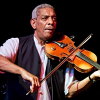
by Carl Medsker
Developing a unique, recognizable voice is a vital accomplishment for a jazz musician. Within a few notes, there is no mistaking the distinctive violin of Billy Bang. In nearly every aspect of the instrument, he was singular: timbre, articulation, bowing technique, percussive use of the bow, pizzacto playing, glissandos, phrasing and yes, the occasional dissonance. He once said he was influenced more by saxophonists than string musicians. Categorizing Bang as avant-garde exposes the limitation of labels. While energetic, free flights ...
Continue ReadingThe Jazz Doctors: Intensive Care / Prescriptions Filled

by Chris May
Beyond its initiates, the so-called New Thing which emerged in mainly, but not exclusively, Black US jazz in the 1960s/70s, was perceived so amorphously that prairie-wide distinctions between its practitioners went unregarded. Among the general jazz audience, the musicians were lumped together as a horde of crazed zombies who lacked all technique, and who had replaced creativity with noise and anger, and beauty with ugliness. Tenor saxophonists were particularly prone to such dismissal and, given the number ...
Continue ReadingBilly Bang: Lucky Man

by Karl Ackermann
When he performed in Germany, they called him the “black devil violinist," his frenetic playing wrapped in a gyrating, trance-like state. For Billy Bang, who believed he had schizophrenia, the epithet bore a resemblance to his inner turmoil. He was born William Walker in Mobile, Alabama but grew up in the South Bronx. He studied violin and classical music, and his talent earned him a hardship scholarship to the Stockbridge School in Stockbridge, Massachusetts. Bang felt out of place in ...
Continue ReadingBilly Bang: Da Bang!

by Eyal Hareuveni
The final recording of the late violinist Billy Bang from February 2011, days before his final performance in the TUMfest 11 in Helsinki, is a celebration of his life as musician. Bang chose for this recording compositions of innovative musicians in the history of jazz--Don Cherry, Ornette Coleman, Miles Davis and Sonny Rollins-- that were part of his quintet repertoire for years. His trusty quintet supports his musical ideas and improvisations beautifully, and the album booklet features touching and insightful ...
Continue ReadingBilly Bang: Da Bang!

by Glenn Astarita
Da Bang was recorded two months before violinist Billy Bang's battle with cancer ended in April, 2011. The album title is lifted from Bang's former FAB Trio band mate, drummer Barry Altschul. Indeed, Bang was an influential presence, partly due to his cutting-edge improvisational faculties. He was an artiste markedly comfortable in most any setting. On this outing, Bang covers modern jazz standards and contributes one original composition. The quartet gels on the late Don Cherry's “Guinea," which ...
Continue ReadingBilly Bang: Da Bang!

by John Sharpe
Even were one not viewing Da Bang! through the lens of this being violinist Billy Bang's last album, recorded just two short months before he succumbed to cancer in April 2011, there is still a detectable elegiac air which pervades even the brightest tracks. That's not the fault of the cast, although trombonist Dick Griffin comes across as a somewhat downbeat soloist, nor the material though it includes a selection of old warhorses. Rather it is down to the unvarnished ...
Continue ReadingBilly Bang: Da Bang!

by Troy Collins
Da Bang! is the last studio album recorded by violinist Billy Bang, made just two months before he passed away on April 11, 2011. Diagnosed with lung cancer in 2009, Bang spoke about the healing power of music during these sessions and how he wanted to give something back to those who inspired and supported him. Considering the bulk of the record consists of covers, this final effort can be interpreted as the innovative violinist's elegy to the artists and ...
Continue ReadingBilly Bang Quintet Featuring Frank Lowe - Above and Beyond (2007)

Source:
Something Else!
By Mark Saleski It can be a tough thing to witness an aging musician head toward (or past) the point of no return. For me, the worst example was Miles. Sure he played that concert with Quincy at Montreux but the power behind the man with the horn just wasn't there. There are counterexamples out there. Ornette Coleman's Sound Grammar was a stunner. Frank Lowe's final recording with violinist Billy Bang is right there as well. What makes Above and ...
read more
Billy Bang's Survival Ensemble - Black Man's Blues/New York Collage (NoBusiness, 2011)

Source:
Music and More by Tim Niland
Violinist Billy Bang had been through a lot by the time he was ready to record his first LP as a leader, included as part of this extraordinary two-disc collection of his early work. Bang had survived a harrowing tour of duty in Vietnam, an influx of competing musicians from the Midwest, and the economic hardships that creative musicians in New York City always face. The music itself however, is raw and fascinating. The lengthy liner essay by Ed Hazel ...
read more
Vision Festival 16 Billy Bang Memorial and Then Some

Source:
Chris Rich
Vision Festival 16 concludes as it began with a tribute to one of its own now gone. In this case it would be Billy Bang. Along the way are many other memorable moments waiting in the wings. Abrons Arts Center In the Main Stage 6:00PM to 7:00PM Reut Regev R*Time Special Edition Reut Regev (trombone), Burton Greene (piano), Al Macdowell (bass) and Igal Foni (drums). 7:00PM to 8:00PM Connie Crothers Quartet Connie Crothers (piano), Richard Tabnik (alto sax), Ken Filiano ...
read more
Billy Bang

Source:
Music and More by Tim Niland
Like many other jazz fans, I was saddened to hear of the passing of the great violinist and composer Billy Bang at the age of 63. Bang's story was a harrowing and inspiring one, after surviving traumatic experiences as a soldier during the Vietnam War, Bang returned to the States, and employed his violin in many jazz contexts from swinging tributes to Stuff Smith to experimental recordings as a leader and a member of the String Trio of New York. ...
read more
Billy Bang - R.I.P.

Source:
Sound Insights by Doug Payne
The great jazz violinist and composer Billy Bang, born William Vincent Walker on September 20, 1947, in Mobile, Alabama, died at his home in Harlem on April 11. The cause of death was complications due to lung cancer. Billy Bang moved with his family to Harlem, New York while still an infant. He studied violin in school and took up drums and flute independently. He briefly attended the exclusive Stockbridge prep school in Massachusetts with no music curriculum, then dropped ...
read more
Billy Bang (1947-2011): An Appreciation

Source:
Something Else!
By S. Victor Aaron The jazz world suffered a significant loss Monday with the passing of violinist Billy Bang. Reportedly afflicted with lung cancer, Bang, born William Vincent Walker, was 63 years old. Given his stage name from friends as a youth, a name taken from a cartoon character, Bang's life was anything but comical. He studied violin as a boy but didn't fit into a prep school he earned a hardship scholarship for, and was drafted into the U.S. ...
read more
Billy Bang, 1947-2011

Source:
Rifftides by Doug Ramsey
The violinist Billy Bang, who created himself as a jazz musician out of the trauma of the Vietnam war, died yesterday at 63. Inhabited by his combat experiences, his emotions wounded, Bang found relief and rehabilitation by returning to the violin he had studied as a child. He pursued an intensity of expression that helped that helped him evade his demons. He became one of the most centered players in the free movement, inspired by John Coltrane and by the ...
read more
Jazz Violinist Billy Bang Dies

Source:
Michael Ricci
American jazz violinist Billy Bang has died at the age of 63. The musician passed away on Monday (11, Apr 2011) after reportedly battling lung cancer, according to publication Jazz Times. Born William Walker in Alabama, the star embarked on a career in music after serving in the U.S. Army during the Vietnam War. He went on to enjoy a career spanning four decades, co-founding the String Trio of New York, alongside guitarist James Emery and double bassist John Lindberg. ...
read more
Jazz violinist Billy Bang dead at 63

Source:
Michael Ricci
One of Rochester's favorite musicians, jazz violinist Billy Bang, has died at the age of 63. Over the past decade Bang appeared many times in Rochester, including a collaboration with Garth Fagan Dance. A favorite at the Xerox Rochester International Jazz Festival, Bang was scheduled to play on the first day of the 2011 festival (running June 10-18). It would have been his fourth festival appearance. “Billy was extremely well liked in Rochester and had an exceptionally loyal following," says ...
read more
Announcing the Winners of the "Billy Bang - Prayer for Peace" Giveaway

Source:
All About Jazz



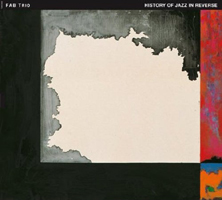
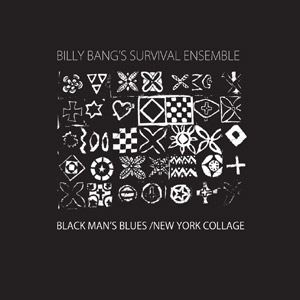












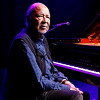



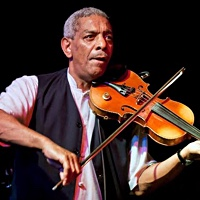








_with_Skip_Mcdonald_(Right)_23_n.jpg)











